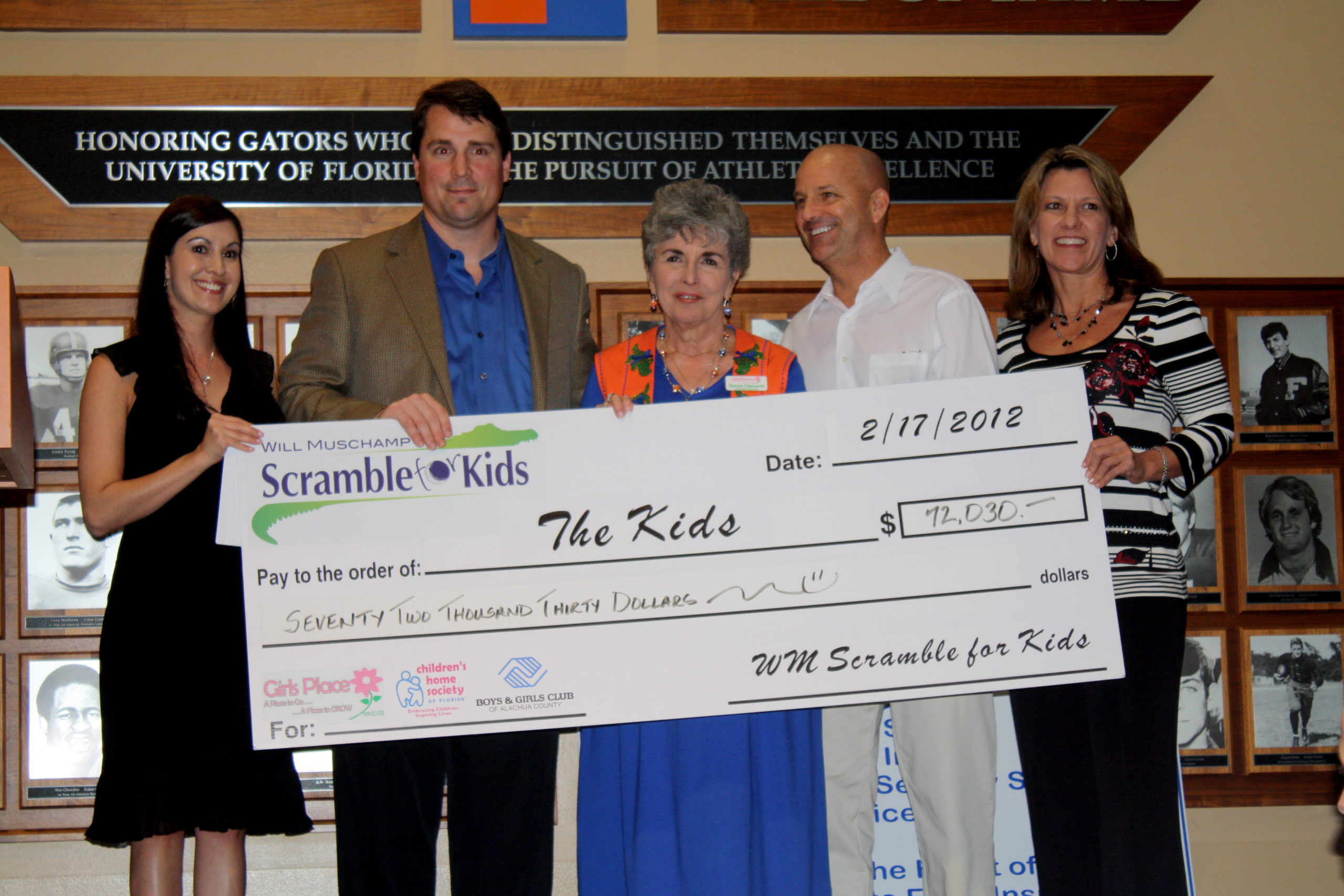Kelly A.Mongiovi knows how to make her voice heard.
She studied communication sciences and disorders at the University of Florida, but before that, her mother, Susan Bergonzoni, taught her and her twin sister how to speak their minds.
So in seventh grade, when the children at school bullied Mongiovi, she wrote a poem addressed to them and the others who judged her, titled, “Who am I?” which expressed herself in terms apart from her disability.
Mongiovi has been treated differently throughout her life, from the children on the playground to the wait staff in the restaurant to the people in the workplace. Some people treat her as an extension of her disorder, cerebral palsy, rather than as an individual who happens to have the disorder.
Both Mongiovi and her twin sister were born prematurely with oxygen deprivation. They were diagnosed with cerebral palsy at the age of 2 and would be wheelchair-bound for the rest of their lives.
Yet Mongiovi has not let the prescribed limits of cerebral palsy confine her professionally or personally. She graduated at the top of her class in high school and went to UF to pursue a bachelor’s degree in the health sciences.
After studying at UF for a few years, she realized she did not have to be in the medical field to be of service. She continued her education and achieved a master’s in student personnel and higher education.
“I’ve always had that innate desire to help others,” Mongiovi said. “I just didn’t know how that vision would manifest.”
Now, Mongiovi is a counseling specialist for the Disabilities Resource Center at Santa Fe College.
She said she is in a special position, having been on both sides of the table, once as a student seeking advice and now as a counselor providing guidance.
“My goal is to make a difference at the end of the day,” she said. “That’s my reward.”
Mongiovi hopes to continue to foster disability advocacy and awareness. Beyond her current position, she sees herself teaching, doing motivational speaking or, if the opportunity presents itself, performing.
What many people do not know about Mongiovi is she also likes to express herself on stage. “Singing is where I find my purest joy.”
As a child, she sang in choir. In high school she competed in districts, regionals and states. Mongiovi has even participated in a telethon, singing Silent Night as people called in to donate money to the United Cerebral Palsy Association. She and her identical twin were the poster children for its New York chapter. They would go to fundraisers, make appearances, participate in photo shoots, star in commercials, and smile and look cute.
Being the face of the association was Mongiovi’s first exposure to filming. She was fascinated by TV as a child and still is.
In grade school, she would come home from a difficult day and sit in front of the television. Sit-coms and soap operas were her favorites. She could escape reality for a while and live vicariously through a cast of characters.
When she was older, she discovered that not only could she watch the characters’ lives unfold on screen, but she could also play them out in real life.
While still in undergraduate school, she heard about an acting workshop in L.A. that was being put on by Thorsten Kaye, the actor in one of those daytime TV shows she used to watch as a child, One Life to Live.
While she was there, she even got to meet her other television idol, Susan Haskell, Thorsten Kaye’s wife and fellow co-star of One Life to Live.
That was 14 years ago. A photo of that day rests on Mongiovi’s desk shelf. A single rose is framed around the picture of a smiling Mongiovi alongside Haskell and Thorsten. To this day, they still keep in touch.
Mongiovi was also given the opportunity to go to Orlando and act in a customer service and diversity video called Service Savvy.
She played the part of a customer at a restaurant who has a physical disability. In the vignette, she goes out to eat with a friend, but when it comes time to order, the waiter asks the friend what Mongiovi would like to order, rather than asking Mongiovi directly.
This is a type of attitudinal barriers that people with disabilities encounter often, Mongiovi said. Some may assume one cannot order for oneself, or be a productive member of society.
These are prejudices that Mongiovi confronts personally and professionally. She went back to UF recently to get a Ph.D in higher education so that she could advance in her work to help others.
Her dissertation was about the differential treatment that affects high school students with disabilities. Writing has always been an outlet to promote advocacy for Mongiovi, ever since she was in seventh grade and wrote that poem.
She wants to continue with this passion, and she recently found the perfect outlet. Her mom, her most valuable mentor, recently passed away a few months ago. She left behind an unfinished manuscript. It is a guide for parents of children with disabilities. It recounts personal experiences and reflections on how to deal with the situation and, most of all, the message of hope and to never give up.
Mongiovi wants to pick up where it left off.
“Carrying on her legacy would be the greatest gift of all.”


